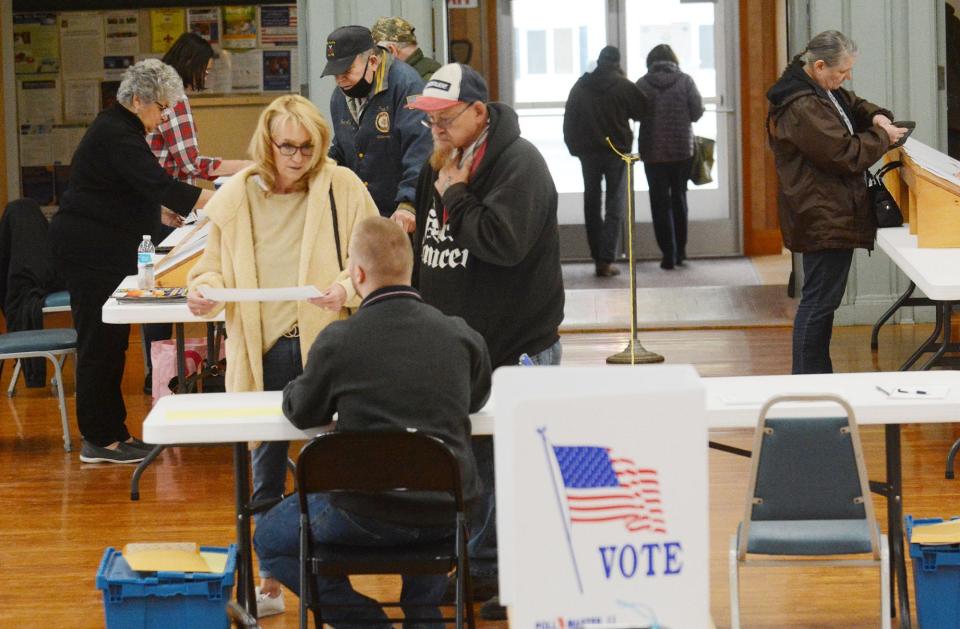There are four questions on the Nov. 8 election ballot just for Plainfield residents. What to know.
In addition to choosing representatives and a statewide early voting question on Election Day, Plainfield residents will also decide four Town Charter amendment proposals that cover municipal spending and job-filling issues.
Polls will be open in town from 6 a.m. to 8 p.m. on Nov. 8.
Going forward the town will only use two polling stations as part of a cost-saving consolidation plan that eliminated the Wauregan and Central Village voting locations. Districts 1, 2 and 5 residents from the villages of Plainfield and Central Village will vote at Plainfield Town Hall, 8 Community Ave. Residents from the villages of Moosup and Wauregan – Districts 3 and 4 – will cast ballots at the Moosup Village Fire Department, 37 S. Main St.

The proposed Plainfield charter changes were approved for voter scrutiny after months of discussion by the Charter Revision Commission – the latest iteration of the group was formally dissolved on Monday - and include two spending questions rejected by voters last year. The remaining two proposed amendments revolve around how the town clerk and tax collector jobs will be filled.
Courtney, France, Blacker, Hall:Eastern CT's U.S. Rep. race hinges on jobs and the economy. Where do the candidates stand?
Allowing Plainfield to spend more money without explicit voter approval
Currently, if a requested non-budgeted appropriation - one not approved by voters as part of the annual town budget - of more than $50,000 is proposed, or a shared grant above $10,000, it must be sent to town meeting. Though the charter does not state it, officials said a referendum vote is also required to pass those kinds of expenditures.
The proposed charter amendments would raise the minimum threshold for non-budgeted items to $200,000 – and grants to $50,000 - before a town meeting and subsequent referendum is needed. Officials said the proposed changes are needed to keep up with changing dollar values which have not been addressed since the original language was approved in 1984.
Police and mental healthA mental health expert is now embedded with some Conn. police departments. Here's why.
Should town clerk and tax collector be elected or appointed jobs?
Residents will decide whether to make the town clerk and tax collector jobs appointed, rather than elected, positions.
If the changes are approved, applications for the positions will be accepted and interviews conducted. First Selectman Kevin Cunningham said roughly 70% of Connecticut towns use the appointment process to fill those jobs and that system offers better continuity of service to residents. Unlike the spending questions – which would take effect almost immediately if approved – any change-over to an appointed system would be delayed until the current terms of office of the tax collector and town clerk end in November 2025.
Norwich murder trialA man was gunned down on a Norwich street in 2020. Why hasn't a murder trial started?
Plainfield charter questions on the Nov. 8 ballot
Shall the dollar amount of non-budgeted appropriations be updated from $10,000 to $50,000 minimum, and from $50,000 to $200,000 maximum, before a town meeting is needed?
Shall the minimum dollar amount for shared grants be increased from $10,000 to $50,000 before a town meeting is needed?
Shall the office of the town clerk be changed from an elected to an appointed position?
Shall the office of tax collector be changed from an elected to an appointed position?
John Penney can be reached at jpenney@norwichbulletin.com or at (860) 857-6965.
This article originally appeared on The Bulletin: Plainfield Election Day ballots will include four charter questions

